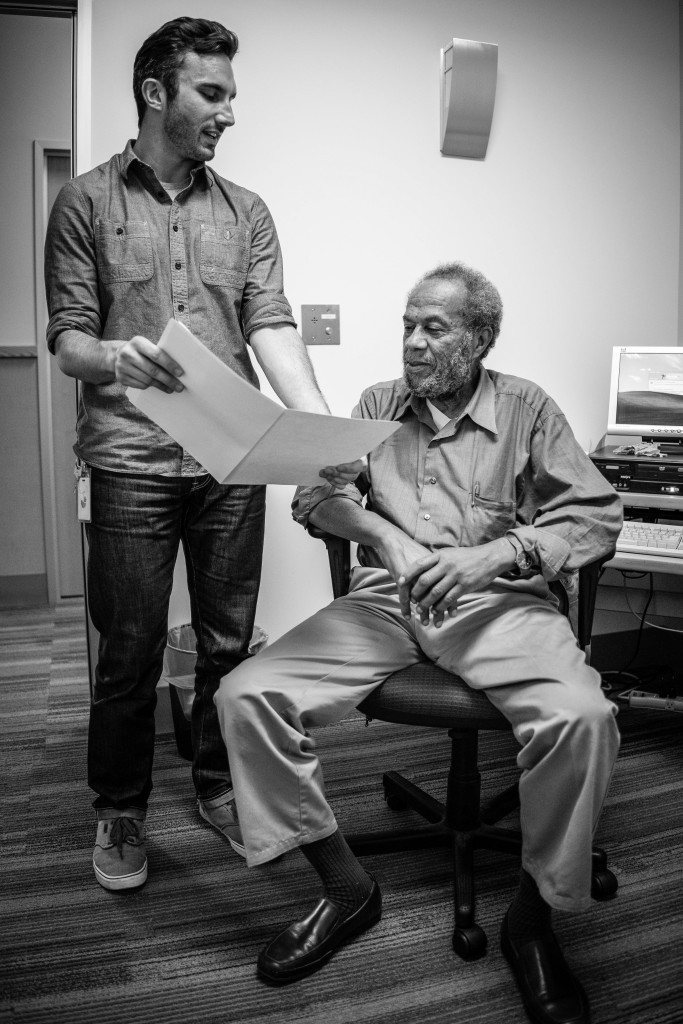Health Center Offers Students Mental Health Services

Edwards is a licensed therapist and helps with a variety of group counseling services on
campus. March 16, 2016. (Photo By Amanda Aceves/Special to The Guardsman)
By Margaret Weir
A study done by the Wisconsin Harvesting Opportunities for Postsecondary Education (HOPE) Lab found that half of all community college students have reported mental health issues in the past year and less than half of those are receiving treatment, Inside Higher Ed reported in March.
About 88 percent of community colleges do not employ a psychiatrist or another version of a mental health professional. Luckily, City College is not part of this statistic.
“We definitely have licensed mental health providers here, a psychologist and licensed clinical social workers,” Student Health Services director Becky Perelli said.
Accessing Treatment
“We screen everyone for depression, and if in fact they have a high level of depression, or were concerned they are at risk, we will have them see one of our mental health providers right away,” Perelli said.
Between eight to 10 percent of community college students have sought treatment through their schools by talking to a psychologist, according to Felicia King, a social worker at City College.
“I don’t think we’re as well-utilized,” King said. “I think part of it is just plain not knowing the service is there, and we talk about that ad nauseam, about how we can get the word out.”
Awareness is a key factor in City College’s efforts to aid in mental health.
Stigmas toward mental health care play a role in the lack of treatment students are receiving. Both King and Perelli said that people often think there has to be something wrong with them to seek counseling, and people don’t want to think of themselves that way.
King and Perelli also agreed that cultural background and religion played a role in people’s decision to look for help.
“We want students to know that we want them to ask for treatment,” Perelli said.
Limited Resources
There’s a delicate balance about raising awareness. City College’s Student Health Center is 100 percent funded by the $17 health fee each credit student pays at the beginning of the semester. There is no state money coming in because they are not a state-mandated program.
“We are very concerned about the budget, because there are less students enrolled so we get less funding,” Perelli said.
The student health fee covers faculty and staff, supplies and equipment, and contracts. They’re looking into possible grants, especially ones for mental health.
“The last thing we want to cut back on is people,” Perelli said.
While the health center would like to provide services to everyone, there are simply not enough resources to do so. If too many people utilize the health center, they won’t have the money to take care of people any more.
Because the state doesn’t mandate health programs like they do for Disabled Students Programs and Services (DSPS) or Extended Opportunity Programs and Services (EOPS), many community colleges do not offer them.
Issues
A report published by Health Services Association of California Community Colleges (HSACCC) says stress is the number one cause of academic underachievement, with depression fairly close behind. Students are often affected by their mental health both in and out of class.
“One of my teachers recently saw someone have a full breakdown and told them about all these resources,” City College student Tyler King said. He said he was not aware of any mental health resources on campus prior to that incident.
The Student Health Center also offers physical health services, which Perelli says are one and the same with mental health.
“Someone who comes to one of our counselors for fatigue may really have anemia!” Perelli said.
Two-thirds of Student Health Center visits are to see a nurse practitioner, and the other third are visits regarding mental health. Despite that, Perelli said City College still does less with physical health than other community colleges.
“Our facility is probably the biggest in the state,” Perelli said. Orange Coast College and Santa Rosa Junior College are close behind.
She primarily credits early screening for the marked increase in students getting help from a counselor or psychologist.
Contact a reporter
Send an email to: Margaret Weir or tweet @mags_weir
